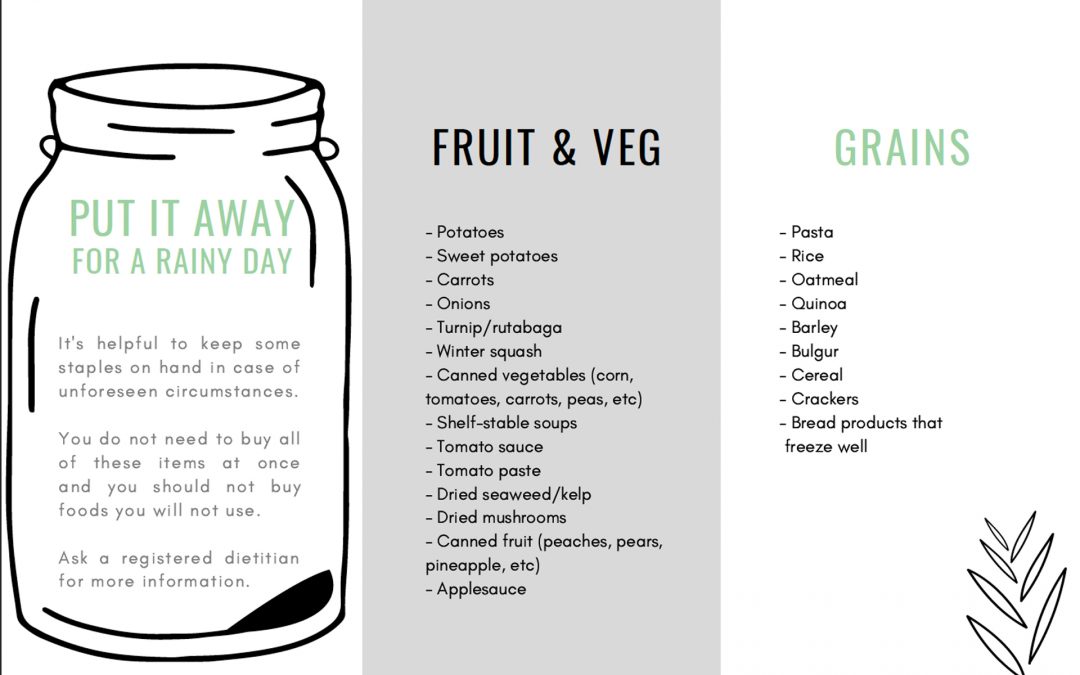It’s helpful to keep some staples on hand in case of unforeseen circumstances. You do not need to buy all of these items at once and you should not buy foods you will not use. Ask a registered dietitian for more information. Download a printable pdf version here.
Fruits and Vegetables
- Potatoes
- Sweet potatoes
- Carrots
- Onions
- Turnip/rutabaga
- Winter squash
- Canned vegetables (corn, tomatoes, carrots, peas, etc)
- Shelf-stable soups
- Tomato sauce
- Tomato paste
- Dried seaweed/kelp
- Dried mushrooms
- Canned fruit (peaches, pears, pineapple, etc)
- Applesauce
Grains
- Pasta
- Rice
- Oatmeal
- Quinoa
- Barley
- Bulgur
- Cereal
- Crackers
- Bread products that freeze well
Protein
- Dried or canned beans, peas, and lentils
- Nuts
- Seeds
- Nut butters
- Frozen meats and poultry
- Frozen or canned fish
- Shellfish
- Dried seafood
- Dried tofu
- Eggs
- Milk
- Powdered milk
- Yogurt
- Cheese
Other Items
- Infant cereal
- Infant formula
- Hydrating foods like ginger ale, juice, jelly powder, freezies, ice pops, and sports drinks in case you don’t feel well
- Oils
- Spices
- Broth
- Bottled water if you do not have a safe source of drinking water at home
- Foods for enjoyment like chocolate, cookies, chips, or popcorn
Remember
- Use up fresh foods first. Read food labels to choose foods with less added salt and sugar.
- Whole grain foods have more fibre than refined grains
- Plant proteins like beans, peas, lentils, nuts, and seeds won’t spoil quickly
- Buy meat , poultry and fish on sale and freeze it
Primary Care Dietitians Association, March 2020
